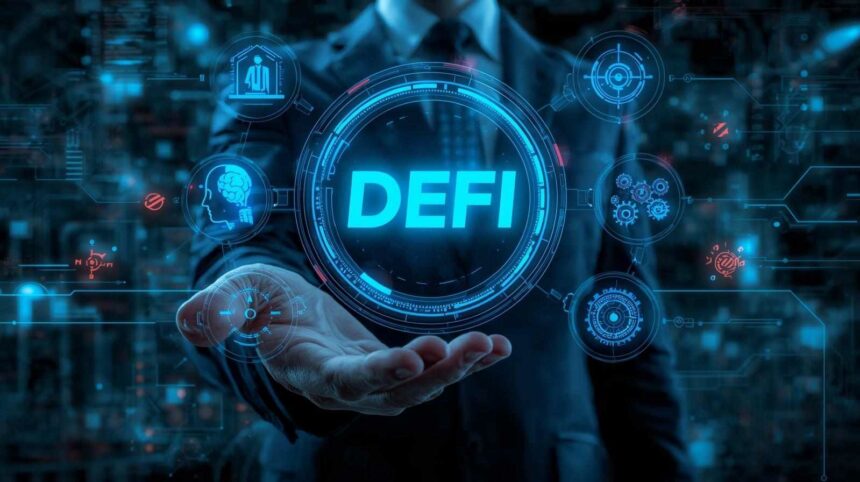Decentralized Finance (DeFi) is one of the most important innovations in the blockchain world. It refers to a financial system built on blockchain technology that operates without intermediaries like banks, brokers, or centralized institutions. Instead, transactions and services such as lending, borrowing, trading, and investing are handled by smart contracts—self-executing programs that run on decentralized blockchains like Ethereum.
What is DeFi in Simple Terms?
In simple terms, DeFi is a digital version of traditional financial services but without banks. Imagine you want to borrow money. Instead of applying through a bank, you can use a DeFi platform that directly connects lenders and borrowers. This cuts costs, increases transparency, and allows global access without needing credit checks or paperwork.
How Does DeFi Work?
DeFi works through smart contracts, primarily on Ethereum but also on other blockchains such as Solana, Binance Smart Chain, and Avalanche. These smart contracts automatically enforce agreements without human involvement.
- Smart Contracts: Ensure that rules are executed as coded, with no third-party intervention.
- Decentralized Applications (dApps): Platforms like Uniswap, Aave, and Compound let users trade, lend, or earn interest.
- Wallets: Users interact with DeFi through crypto wallets like MetaMask or Trust Wallet.
Is DeFi the Same as Crypto?
Not exactly. Cryptocurrencies like Bitcoin are digital assets, while DeFi refers to financial systems and services built around these assets. You can think of crypto as the currency and DeFi as the financial ecosystem where you can use that currency.

Is DeFi Legal in the US?
Currently, DeFi operates in a gray area. It is not illegal, but regulators like the SEC are still developing frameworks to govern DeFi platforms. Users must be cautious, as rules may vary by country, and regulatory changes could impact future operations.
Examples of DeFi
Here are some real-world DeFi applications:
- Uniswap – A decentralized exchange (DEX) for trading tokens.
- Aave – A lending and borrowing platform.
- MakerDAO – Creator of the stablecoin DAI, backed by crypto collateral.
- Compound – A protocol for earning interest on crypto assets.
How to Invest in DeFi
If you’re considering investing in DeFi, follow these steps:
- Set up a wallet – MetaMask or Trust Wallet are popular choices.
- Buy crypto – Purchase Ethereum (ETH) or another blockchain’s token through a centralized exchange.
- Choose a platform – Select DeFi platforms like Aave, Compound, or Uniswap.
- Start small – Begin by lending, staking, or swapping tokens.
- Be cautious – DeFi has risks like volatility, hacking, and smart contract bugs.
Benefits of DeFi
- No middlemen – Direct peer-to-peer transactions.
- Global access – Anyone with internet and a wallet can participate.
- Transparency – Transactions are publicly recorded on blockchains.
- Variety – From yield farming to decentralized exchanges, options are wide.
Risks of DeFi
- Smart contract vulnerabilities – Code bugs can be exploited.
- Scams and rug pulls – Fake projects may steal investor funds.
- High volatility – Token prices can rise and fall sharply.
- Regulatory uncertainty – Future laws may impact DeFi’s growth.
FAQs
Q1. What is an example of a DeFi?
Uniswap, Aave, and MakerDAO are popular examples of DeFi platforms.
Q2. How do I use DeFi?
You need a wallet, cryptocurrency, and access to a DeFi platform where you can lend, borrow, or trade tokens.
Q3. Is DeFi safe?
While DeFi offers transparency, it carries risks like hacks, scams, and volatile prices. Users should research carefully before investing.
Q4. Can DeFi replace banks?
DeFi has the potential to replace some banking services, but it’s unlikely to fully replace banks in the near future due to regulations and scalability challenges.
